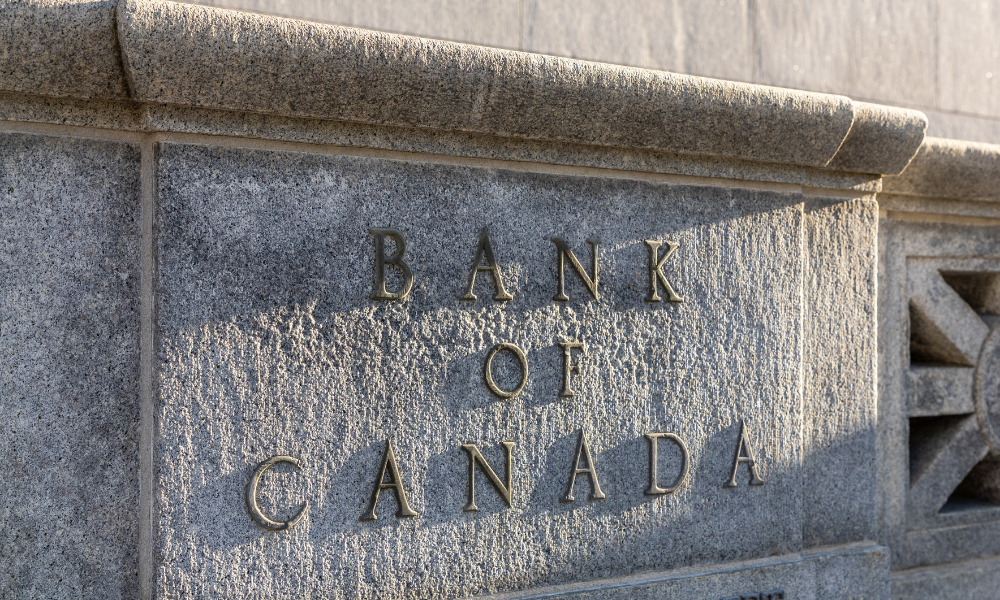The Bank of Canada cuts rates to 3%, with experts warning of economic risks from tariffs and slow growth

The Bank of Canada cut its key interest rate for the sixth consecutive time by 25 basis points on Wednesday, bringing the overnight rate down to 3 percent from 3.25 percent.
According to BNN Bloomberg, the central bank cited “more-than-usual uncertainty” in economic projections, particularly due to US President Donald Trump’s proposed 25 percent tariffs on Canadian goods, which could take effect as early as Saturday.
Warren Lovely, chief rates strategist at National Bank of Canada, noted in a discussion with BNN Bloomberg that the BoC’s pace of rate cuts has been among the fastest globally.
“Who doesn’t like round numbers? We’ve moved from 5 percent at its peak to 3 percent now, that’s 200 basis points in six meetings,” he said. He added that Canada’s economy has underperformed significantly and now faces a major economic threat.
The gap between the Canadian and US economies is widening, with the US showing resilience while Canada struggles with slower growth. “We really do have a tale of two economies here,” Lovely said.
He added that Canada’s rate-cutting cycle, compared to the US Federal Reserve’s current stance, is likely to further impact financial markets and weaken the Canadian dollar. “It’s hard to be too constructive on the Canadian dollar here in my opinion,” he said.
Ed Devlin, founder of Devlin Capital and a senior fellow at the C.D. Howe Institute, said to BNN Bloomberg that the BoC deserves credit for its aggressive approach to easing monetary policy since June of last year.
“We had to move up aggressively and they moved up aggressively – I give them kudos for that. Now they are moving down aggressively, and I give them kudos again for that, and I would encourage them to keep doing that,” he said.
According to Benefits and Pension Monitor, economist Allison Boxer said she expects the BoC to continue cutting rates throughout the year, even without US tariffs.
She noted that “the Bank of Canada is more concerned about negative growth versus near-term inflationary impacts from any tariffs and retaliatory measures.”
Earl Davis, head of fixed income and money markets at BMO Global Asset Management, said to BNN Bloomberg that while US growth benefits Canada due to trade ties, the impact of tariffs remains uncertain.
“Seventy-five percent of our trade is with the US, so if the US is doing well, we’ll do well,” he said. He also pointed out that a weaker Canadian dollar could mitigate some negative effects.
Étienne Labrecque, vice president and portfolio manager at Ninepoint Partners, posted on X that the BoC projects economic growth of 1.8 percent in 2025 and 2026, down from a previous forecast of 2.1 percent.
The #bankofcanada cuts the overnight rate by 25bps, as expected. What's more interesting is the Monetary Policy Report and their new forecasts. Abstracting from the potential trade war with the U.S., they now estimate that the Canadian economy will grow by about 1.8% in 2025 and…
— Etienne Bordeleau (@Bordeleau_E) January 29, 2025
He noted that tariffs could hurt economic activity and push inflation higher, making it difficult for monetary policy to address both issues. “Inflation is back at target and the economy is operating under potential, so most likely they can help boost growth (i.e. lower rates),” he said.
Trump’s tariff policies add to the uncertainty.
Devlin told BNN Bloomberg that while Trump’s trade rhetoric makes it difficult to predict his next move, the US president likely monitors equity markets closely. “If his tariffs or his trade policies cause the stock market to tank, look for him to reverse them,” he said.
Shannon Terrell, a financial expert at NerdWallet Canada, said to Benefits and Pension Monitor that the BoC’s rate cut aims to soften the economic impact on households but warned that “this won’t be a free fall into cheaper borrowing.”
She highlighted ongoing challenges, including trade tensions with the US, which could create further headwinds.
Clay Jarvis, a mortgage expert at NerdWallet Canada, said that while the BoC’s rate cut will slightly lower variable mortgage rates, it is unlikely to significantly impact the housing market. “Rates may not be the determining factor for home buyers in the first half of 2025,” he said.
Paul Shelestowsky, an investment advisor at Meridian, said to Benefits and Pension Monitor that Canada needs further rate cuts in the coming months to maintain price stability and support growth.
He pointed out that “we’re starting off 2025 with core inflation at 2.15 percent — well below last year’s average of 3.54 percent,” but potential tariffs and the federal tax holiday’s end could increase economic pressures.
Aradhya Gujar, an account executive, told Benefits and Pension Monitor that the BoC’s decision aligns with market expectations. She projected that rates could drop to around 2.5 percent in 2025.
However, if Canada and the US impose 25 percent tariffs on each other’s goods, the resulting inflation could force the BoC to reverse course and raise rates again.



